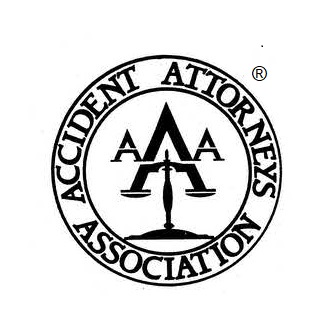Never leave the scene of an auto accident. If you leave the scene of an auto accident, you may be criminally prosecuted. Make sure your vehicle is not presenting a hazard to other motorists. To avoid additional collisions, your vehicle should be moved to the side of the road so that it is not obstructing traffic, but only if it’s safe to do so.
Alert the police or highway patrol. Typically, they will prepare a report that contains pertinent information about the accident and the parties involved. This report is very important so and will become part of the evidence in negotiating with the insurance company. Therefore, never admit liability. You should not accept responsibility for the accident because it may complicate your case and may make it difficult for you to collect compensation. Judgment as to who was at fault should be reserved for a later time by the insurance adjusters investigating the incident.
Obtain information from the other parties and witnesses. You should always get the names, addresses, and telephone numbers of any individuals involved in the accident, as well as any witnesses of the accident. Use your cell phone to take pictures of the documents, the license plate, and the make and model of each of the cars involved. You should also obtain the name of the insurance company and policy number of the other drivers involved. If possible, you may want to take photographs to document the accident scene including damage to the vehicles.
Yes. You should go to the doctor because certain injuries may not manifest themselves until sometime after an accident. By not seeing a doctor, you risk delaying your treatment and sustaining further injury. Even minor soreness can be an indication of a more significant injury. If you believe that you may have been injured, you should see a doctor. It is very common for insurance companies to argue that the failure of an individual to see a doctor right away indicates that an injury diagnosed later must have resulted from an unrelated event after the accident.
Generally speaking, if you are involved in an auto accident that was the fault of another driver, you may be entitled to reimbursement for your medical bills associated with the treatment of your injuries, costs of future medical treatment, lost wages, pain and suffering, property damage, and rental charges. You may also recover other costs directly attributable to the accident such as towing and storage.
That’s a tough question. In most cases, you can only recover compensation if the negligent party has available assets or insurance. In some instances, a negligent driver who does not carry their own insurance may nonetheless be covered by another person’s insurance policy. In addition, if the negligent driver was operating a vehicle during the scope of their employment at the time of the accident, their employer may be liable.
If the negligent driver does not have insurance coverage to the extent of your damages, you may be able to recover under your own insurance policy if it provides you with “underinsured motorist coverage.” It is often advisable to have an attorney review your insurance policy to determine whether or not this coverage is available to you. If you have personal injury protection coverage as part of your own auto insurance coverage, you may also be entitled to reimbursement under your own policy. Settling with the negligent driver’s insurance company may affect your insurance company’s responsibility. That’s why it’s important to consider speaking with an attorney before accepting any settlement.
It is always best to talk to an attorney first. You should be very careful if you decide to give a statement to anyone concerning the accident. These statements may be misconstrued or used against you later.
No. Do not accept a check from the other party or their insurance company. Talk with a trained lawyer first. Accepting a check may be taken the wrong way. The acceptance of a check may be construed as a settlement barring any further recovery against the negligent driver or their insurance company. You should not accept a check or sign a release until after you have completed all your medical treatments and have been released by a doctor. You could risk settling your case for an amount which is insufficient to cover your medical bills and other damages.

